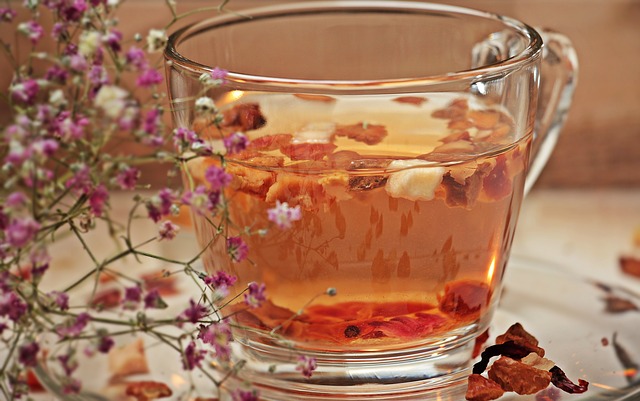In the world we live in today, anxiety and depression are two of the most widespread conditions that affect our society. In fact, those are some of the most common causes of medical leave in many western countries. Most of us know someone who is currently dealing with anxiety, or even suffer from it ourselves, so we know that dealing with anxiety is no joke. That’s why more and more people are seeking both medical and natural remedies to ease their anxiety problems.
In this article, we’ll explore how anxiety works and we’ll give you an overview of some natural kratom alternatives for anxiety.
What is Anxiety?
Anxiety is basically a defense mechanism. We feel anxiety when we anticipate danger or a threatening situation. So, a certain level of anxiety is, not only normal, but it’s necessary for our life.
The problem comes when we feel anxious for no apparent reason. Then, anxiety is no longer a defense mechanism, but a health problem.
Although every person is different, some common symptoms of anxiety include:
- Apprehension and feelings of fear or danger
- Nervousness and restlessness
- Hyperventilation
- Rapid heart rate
- Weakness
- Insomnia
- Obsessive thinking
- Panic attacks
What is Social Anxiety?
Social anxiety is a special type of anxiety. Typically, those who suffer from social anxiety feel anxious and nervous in common social situations. The fear that social anxiety sufferers feel, can be so overwhelming that they usually try to avoid any social gatherings.
Typical symptoms of social anxiety are:
- Voice and hand trembling
- Fast heartbeat
- Profuse sweating
- Blushing
- Muscle tension
- Upset stomach
Social anxiety is an important problem that should not be taken lightly. People who suffer from social anxiety tend to isolate themselves and this may lead to more serious conditions, such as depression.
Causes of Anxiety
There are different factors that are related to anxiety. Firstly, there are predisposing factors. According to these, some individuals may be more likely to suffer from anxiety than others. These include:
- Genetic or biologic predisposition
- Certain personality types or lifestyles
- Environmental factors
Secondly, there are triggering factors. These can include many situations, some examples include:
- Stressing situations, such as a stressful job or disease or death in the family.
- Anxious thoughts.
- Family or relationship problems.
- Stressful or traumatic events.
Finally, once anxiety is present, there are maintaining or exacerbating factors that make it very difficult to get rid of it:
- Rumination, or constantly thinking about problems.
- The tendency to think that bad things will happen or that every situation will end up badly.
- Inflexibility in thinking.
Also, some illnesses and diseases can cause anxiety. Some examples include asthma, diabetes, and heart disease.
How to Cope with Anxiety
Although anxiety is a very difficult condition for those that suffer from it, there are some tips that you can follow, for example:
- Keep a healthy diet
- Exercise regularly
- Get enough sleep
- Maintain a positive attitude
- Accept that you can’t control everything
- Learn about what triggers your anxiety
Also, when you are experiencing an anxiety or panic attack, there are some things that you can do to try and minimize its symptoms or duration:
- Take deep breaths
- Slowly count to 10
- Practice some relaxation techniques
- Talk to someone
Kratom for Anxiety
In recent times, we have been witnessing many people who are seeking natural alternatives to ease their anxiety. Although kratom can’t cure anxiety by itself, many users report that kratom has helped them alleviate its symptoms. Some of the best strains of kratom to ease anxiety are Indo and Borneo.
Kratom has not only been proven effective when dealing with anxiety, but it’s also very effective for social anxiety. The green vein and red vein strains are typically the most popular amongst those who seek to ease their social anxiety situations.

Kratom Alternatives for Anxiety
Since kratom is not currently legal in every state, let’s explore some natural kratom alternatives for anxiety.
Kanna
This herb has been used for many generations by the indigenous tribes of South Africa, who used to ferment the plant and then chew it to elevate their mood and get rid of anxiety.
Users report that kanna may help deal with anxiety, elevating the mood, and giving a slight sense of euphoria at the same time.
Finally, consider that kanna is a serotonin reuptake inhibitor, so never mix it with other SSRIs, MAOIs or MDMA (XTC) as this can cause injuries.
Kava Kava
This plant is native to the islands of the Pacific Ocean, including Fiji, Hawaii, and Polynesia. The native cultures of these areas used kava as a ceremonial drink for many generations. Also, they consumed kava as a natural remedy for various ailments, such as insomnia and nervousness.
Today, kava’s popularity is increasing in western society, where is consumed as a recreational drink, and to help ease anxiety and achieve a state of relaxation. In fact, there are studies that show the potential benefits of kava in patients with a general anxiety disorder.
Mitragyna Hirsuta
This close relative to kratom is native to Southeast Asia. Its effects are very similar to those of kratom, some compare them to a white strain. Like kratom, mitragyna hirsuta, or “kra thum khok” tends to be more euphoric and stimulant at lower doses, while more sedative and relaxing at higher ones.
Some users report that mitragyna hirsuta’s antianxiety properties can be even more effective than those of kratom.
Other Natural Anxiety Remedies
There are many herbs and remedies that people have traditionally used to help them cope with anxiety. Some of the most popular herbs include chamomile tea, passionflower, lavender, and valerian root to name a few.
Also, some recent studies have concluded that a diet rich in omega-3 fatty acids can be helpful when dealing with mild anxiety situations, such as having to pass an exam or talk in front of an audience.
Finally, certain techniques, such as regular exercise, meditation, mindfulness, or yoga have been proven to have effective effects in patients suffering from different forms of anxiety.



